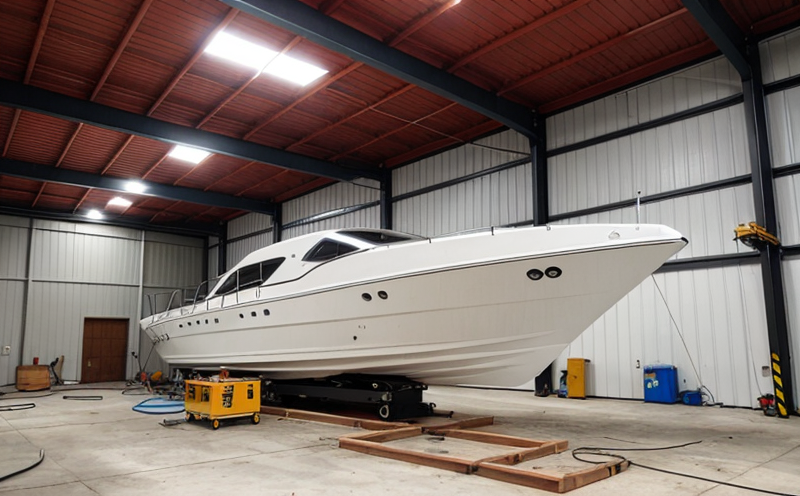ISO 17636 Radiographic Testing of Marine Structural Welds
The ISO 17636 standard is a critical requirement in the marine and shipbuilding industries. This international standard specifies the procedures for radiographic testing of structural welds, ensuring that all critical connections within ships meet the highest quality and safety standards.
Marine structures are exposed to harsh environments including saltwater, mechanical stress from ocean waves, and operational conditions that can lead to fatigue or corrosion. Ensuring these structures remain intact is crucial for maritime safety. Radiographic testing (RT) helps detect any flaws in the welds, which could compromise structural integrity.
The standard ensures that the radiographic process adheres to specific parameters such as radiation type, exposure factors, film processing, and interpretation of results. Compliance with ISO 17636 is mandatory for manufacturers and shipyards involved in the construction or repair of marine vessels.
At Eurolab, our experienced team utilizes advanced radiographic testing equipment to adhere strictly to ISO 17636 guidelines. Our state-of-the-art facilities ensure that we can provide reliable test results that comply with international standards and industry best practices.
The process involves multiple steps:
- Preparation of the weld joint for testing
- Application of radiation source to the weld area
- Film development under controlled conditions
- Inspection and interpretation by qualified personnel
| Parameter | Description |
|---|---|
| Radiation Type | High-energy X-rays or gamma rays are used for the best penetration and image quality. |
| Film Sensitivity | The sensitivity of the film determines the ability to detect small defects in the weld. |
| Exposure Factors | These include kV, mA, and exposure time. They are critical for obtaining clear images without overexposing or underexposing the film. |
| Film Development | The development process must be controlled to prevent distortion of the image or loss of detail in the weld area. |
Industry Applications
The application of ISO 17636 radiographic testing is extensive across various sectors within marine engineering:
- Shipbuilding and repair
- Fishing vessel maintenance
- Petroleum platform construction
- Military ship repairs
| Application | Description |
|---|---|
| Shipbuilding | Ensuring the integrity of hull and superstructure welds. |
| Fishing Vessels | Checking for flaws in critical components such as engine mounts, structural supports, and hull plates. |
| Petroleum Platforms | Verifying the strength of platform foundations and support structures to withstand harsh ocean conditions. |
| Military Ship Repairs | Evaluating structural integrity after operational wear or damage from combat situations. |
Eurolab Advantages
At Eurolab, we pride ourselves on offering comprehensive testing services that exceed industry standards. Our ISO 17636 radiographic testing service is backed by years of experience and cutting-edge technology.
- Expertise in marine-specific testing methods
- Highly trained and certified personnel
- Advanced imaging equipment for precise defect detection
- Comprehensive report generation with detailed analysis
- Accurate and reliable test results ensuring compliance with international standards
We understand the importance of maintaining the highest quality in marine structural integrity. Our services are tailored to meet the specific needs of our clients, providing peace of mind regarding the safety and reliability of their vessels.
Why Choose This Test
The ISO 17636 radiographic testing is chosen for its ability to detect imperfections in welds that are not visible on the surface. This ensures that any defects, such as cracks or porosity, are identified before they become a serious issue.
By adhering to this standard, shipbuilders and repair facilities ensure their products meet stringent quality control measures. This is particularly important for vessels operating in harsh environments where even small flaws could lead to catastrophic failure.
The test results provide critical data that can inform design improvements or maintenance strategies. In addition, it helps in maintaining the regulatory compliance required by maritime authorities worldwide.
Our service not only meets but exceeds these expectations with our commitment to delivering accurate and reliable testing services. This ensures that your marine equipment remains safe and operational for longer periods.





